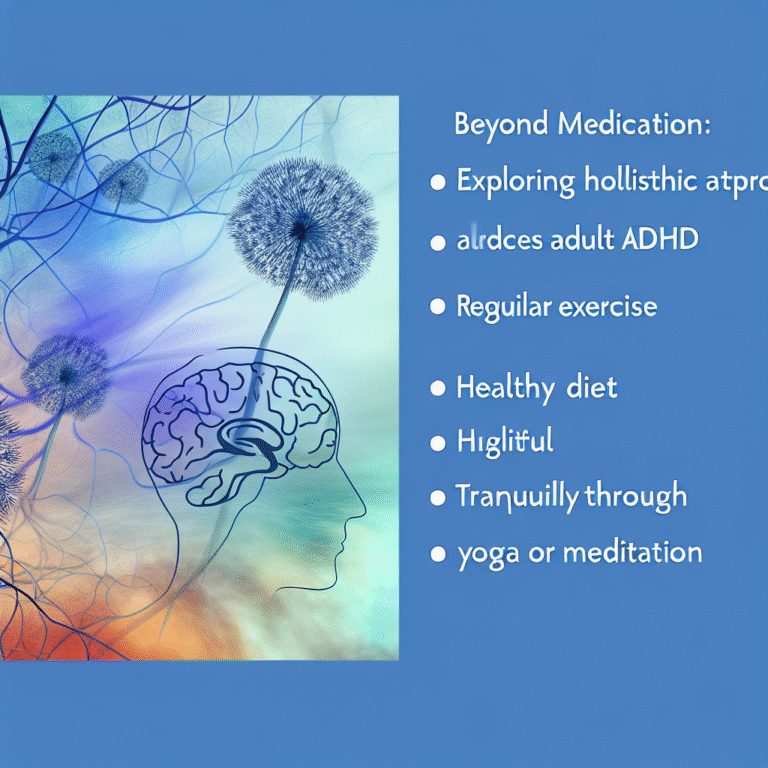
Behind the Facade: The Overlooked Symptoms of High-Functioning Depression
Introduction: The Hidden Struggles
Imagine this: A successful professional, well-dressed, charming, and always the life of the party. They excel at work, have a supportive circle of friends, and seem to have it all together. Yet, behind this facade lies a profound struggle with high-functioning depression—a condition often overlooked or misunderstood. This article delves deep into "Behind the Facade: The Overlooked Symptoms of High-Functioning Depression," shedding light on the nuanced symptoms that can easily go unnoticed.
High-functioning depression often manifests in individuals who appear normal on the surface but wrestle with internal battles that can be debilitating. Understanding this condition is crucial, especially in a world that regularly emphasizes success and productivity over mental health. It’s time to peel back the layers and uncover the subtle symptoms that can indicate high-functioning depression, offering clarity and compassion to those affected.
Understanding High-Functioning Depression
What is High-Functioning Depression?
High-functioning depression, scientifically referred to as Persistent Depressive Disorder (Dysthymia), is characterized by chronic low mood that may not severely impair one’s ability to function daily. Those suffering from this disorder can maintain jobs, relationships, and social lives, often masking their pain behind a smile.
Key Characteristics of High-Functioning Depression:
- Prolonged feelings of sadness or emptiness
- Difficulty concentrating
- Low self-esteem
- Frequently tired or lacking energy
- Irritability and frustration
The Fine Line: Distinguishing Between Regular Depression and High-Functioning Depression
It’s essential to recognize that high-functioning depression is just as serious as major depressive disorder but manifests differently. While the latter often leads to an inability to function, high-functioning individuals manage to cope, albeit with significant internal struggle.
Table 1: Comparison of Symptoms
| Symptom | High-Functioning Depression | Major Depressive Disorder |
|---|---|---|
| Energy Levels | Fatigue, yet functioning | Extreme fatigue, unable to function |
| Social Interactions | Socially engaged, but feels empty | Withdrawal from social activities |
| Work Performance | Maintains performance | Decreased performance |
| Self-Perception | Low self-esteem, but hides it | Often feels hopeless |
Case Studies: Real-Life Examples
Case Study 1: The Overachieving Executive
Profile: Sarah, a 35-year-old executive at a tech firm, was always regarded as an overachiever. She excelled in her role, received accolades, and led her team effectively. Externally, she appeared to be thriving.
Experience: However, Sarah often felt an intense sense of dread each morning. She struggled with persistent feelings of inadequacy despite her successes and often critiqued herself harshly.
Relevance: Sarah’s story illustrates how high-functioning depression can hide behind society’s tropes of success.
Case Study 2: The Social Butterfly
Profile: Mark, a 28-year-old social media influencer, had thousands of followers who admired his charisma and entertaining posts. He often attended parties and events, fueling his online persona.
Experience: Behind the scenes, Mark faced deep feelings of loneliness and anxiety, masking his true emotions with humor and outgoing behavior.
Relevance: This case exemplifies how social engagement can coexist with inner emotional turmoil, highlighting the importance of addressing mental health beyond outward appearances.
Symptoms of High-Functioning Depression: Behind the Facade
1. Emotional Numbness
Many individuals with high-functioning depression report feeling emotionally numb. This symptom often manifests in a reduction of joy or excitement about activities that once brought happiness. Behind the facade of a carefree attitude lies this emotional detachment.
2. Chronic Fatigue
Another overlooked symptom is constant fatigue. Individuals may appear energetic and enthusiastic but often feel a severe lack of energy internally. This disconnect can lead to exhaustion that is invisible to others.
3. Perfectionism and Self-Critique
High-functioning individuals often set exceedingly high standards for themselves. While this hard work can lead to success, the relentless pursuit of perfection can exacerbate feelings of inadequacy and contribute to mental health struggles.
4. Avoiding Help
Due to the facade of functioning well, many may resist seeking help, fearing they won’t be taken seriously. They might worry that admitting their struggles contradicts their high-achieving persona.
5. Strained Relationships
Despite being socially active, feelings of isolation can prevail. High-functioning individuals may experience turmoil within their relationships, feeling misunderstood and often emotionally unavailable.
The Impact of Stigma on Recognition
Why High-Functioning Depression Goes Unnoticed
Societal pressures and stigma surrounding mental health can lead to high-functioning depression remaining undiagnosed. The belief that one must "just deal with it" often prevents individuals from seeking help. Moreover, friends and family may fail to recognize the symptoms since the affected person appears to be managing well in their daily life.
Addressing Stigma Through Awareness
Raising awareness about high-functioning depression is critical. Conversations must evolve from merely recognizing depression as a debilitating state to understanding its variances, including the functioning spectrum.
Taking Action: Steps Toward Recovery
1. Acknowledgment and Acceptance
The first step towards managing high-functioning depression is acknowledging its existence. Understanding that it’s okay to feel this way, regardless of success, opens the door for healing.
2. Seeking Professional Help
Engaging with mental health professionals can provide much-needed strategies for coping. Therapy, counseling, or medication may all be viable options depending on individual needs.
3. Building Support Networks
Creating a network of trustworthy friends or support groups can lessen feelings of isolation. Discussions with those who share similar experiences can reinforce the understanding that one isn’t alone.
4. Practicing Self-Care
Incorporate self-care activities into daily routines. Regular exercise, mindfulness practices, and hobbies can contribute to improved mental wellness.
5. Setting Realistic Goals
Instead of striving for perfection, setting achievable and realistic goals can help individuals experience a sense of success and improve motivation.
Conclusion: Inspiring Change and Awareness
In conclusion, high-functioning depression is an often-misunderstood condition that affects many people. By recognizing the symptoms and underlying struggles, we can create a culture that acknowledges mental health in its diverse forms.
While those affected may appear to thrive, it is essential to look deeper, as many fight battles behind their facades. It’s time to demystify these experiences and foster an environment where individuals feel empowered to seek help, leading to a more compassionate society.
FAQs
1. What is high-functioning depression?
High-functioning depression is a condition where individuals experience chronic low mood and other depressive symptoms but can still maintain a degree of functionality in their daily lives.
2. How can I tell if I have high-functioning depression?
If you often feel sad or empty but can still perform well at work and in relationships, you may be experiencing high-functioning depression. Consulting with a mental health professional is essential for an accurate diagnosis.
3. Is high-functioning depression less serious than major depression?
Not necessarily. While individuals with high-functioning depression can manage daily tasks, the emotional struggles can be just as serious and require attention and treatment.
4. What should I do if I think I have high-functioning depression?
It’s crucial to seek help from a mental health professional. Support from friends and loved ones can also be valuable in managing symptoms.
5. Can lifestyle changes help with high-functioning depression?
Yes, adopting a healthier lifestyle, engaging in regular exercise, practicing mindfulness, and allowing self-care can all contribute positively to your mental health while managing high-functioning depression.
This comprehensive exploration into "Behind the Facade: The Overlooked Symptoms of High-Functioning Depression" aims not only to inform but also to inspire and motivate individuals facing similar challenges. Let’s openly discuss mental health and aid each other in navigating this vital aspect of our lives.
















